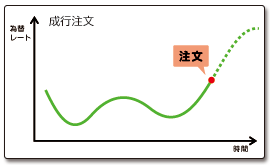Nariyuki (成り行き) generally means something like ‘the natural scheme of things’, but it can be a bit of a surprise the first time you come across it in a given situation. This post looks at a few examples of its usage.
The first time I consciously came across the term was in the below email conversation with friends (abridged). Take a look and see if you can follow the conversation.
A-さん
突然ですが、今週の日曜日、予定は空いていますか?
もし良かったら、中止になったBBQをやりたいと思います。
お返事ください。よろしくお願いいたします
B-さん
こんにちは
ちょうど僕も日曜日が空いていますので、行けます!友達も行きたいと言っていますが、参加してもいいでしょうか?僕も含めて3か4人くらいです。
よろしくお願いします。
A-さん
おはようございます。
こちらこそ、よろしくお願いいたします。
友達も、ぜひ、参加してください。
それでは、日曜日、開催したいと思います。Cくんには悪いけど、集合時間を昼の12時に、
市役所玄関前にしたいと思います。
私が車で迎えに行きます。Cくんの合流方法は、検討しましょう。
からいもの以外で、苦手な食べ物があれば、教えてください。
お金は、ひとり2000円を予定してください。
とても楽しみにしています。
C-さん
了解です。
なりゆきで。
Did you follow the conversation? Three people are involved. A-san is arranging a BBQ with B-san and C-san talking about attending. Things are pretty straightforward right until the end when C-san, presumably pressed for time, chimes in with a snappy なりゆきで. What to make of it?
That’s not all! Log in to see the rest of this lesson.
Or if you aren’t a member yet, please consider signing up.

Leave a Reply